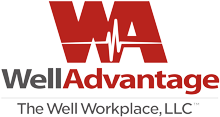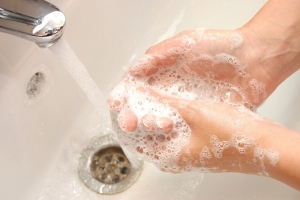National Hand Washing Week
Next week, December 7-13, is National Hand Washing Week. In honor of the week we would like to supply you with these vital tidbits of how important the simple 20-second task of hand washing truly is.
Vital Times to Wash Your Hands
- Food: Before, during (especially when handling raw fish, chicken, and meat), and after preparing food, and before eating
- Illness & Wounds: Before and after caring for someone who is sick , before and after treating a cut or wound, and after blowing your nose, coughing, or sneezing
- Human & Animal Waste: After using the toilet, changing diapers, helping a child who has used the toilet, or touching animal waste
- Animals: After touching an animal, animal feed, or animal waste, and after handling pet food or pet treats
- Garbage: After touching garbage
How to Wash Your Hands: 5 Easy Steps
- Wet your hands with clean, running water (warm or cold), turn off the tap, and apply soap.
- Lather your hands by rubbing them together with the soap. Be sure to lather the backs of your hands, between your fingers, and under your nails.
- Scrub your hands for at least 20 seconds. Need a timer? Hum the “Happy Birthday” song from beginning to end twice.
- Rinse your hands well under clean, running water.
- Dry your hands using a clean towel or air dry them.
Did you Know?
Alcohol-based hand-sanitizer that contains at least 60% alcohol is not as effective when hands are visibly soiled or greasy. And in general, hand sanitizer is not as effective as washing hands in reducing potentially harmful microbes. Head for the soap and water and get to scrubbin’!
A Little Science
According to a 2009 article on LiveScience.com (http://www.livescience.com/3686-gross-science-cough-sneeze.html), the average human cough expels about 3,000 droplets of saliva. Some of them fly out of the mouth at speeds of up to 50 miles per hour. Sneezing is worse. As many as 40,000 droplets of liquid traveling as fast as 200 miles per hour. These droplets can, depending on their size, stay suspended in the air indefinitely. So even if you didn’t sneeze or see someone sneeze, you could be walking through or touching a droplet covered object. A great reason to regular wash your hands that often come in contact with your eyes, mouth, and nose!
According to the CDC (http://www.cdc.gov/handwashing/why-handwashing.html), a single gram of human feces can contain one trillion germs. Many of the germs are naked to human eye. Even if you are fastidious about hand washing, others may not be. Wash your hands often especially when visiting public places.
The CDC estimates (http://www.cdc.gov/Features/dsFoodborneEstimates/) that each year 1 in 6 Americans get sick from food-borne illnesses. Causes of food-borne illnesses include contaminating food with dirty hands and transferring microbes from raw food, among other sources of contamination.
There you have it. A task that takes 20 seconds can save you and those around you days or weeks of sickness. Now excuse me while I go fiercely wash my hands after reading this!

